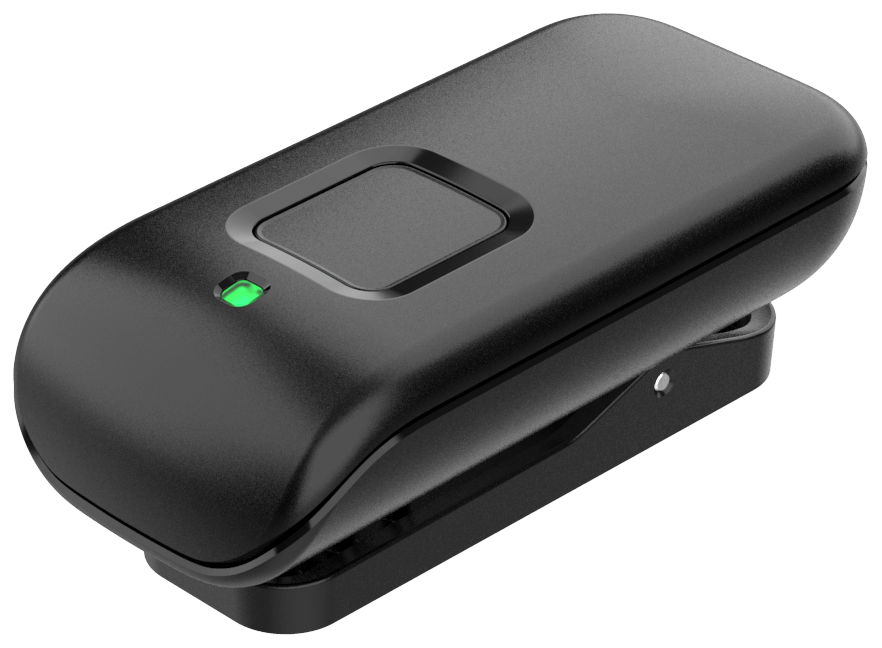Table of Contents
Understanding Hearing Aid Prices in Singapore: What You Need to Know
If you’re looking to purchase a hearing aid in Singapore, one of the first questions you likely have is: How much do hearing aids cost? The cost of hearing aids can vary significantly based on several factors, including brand, technology, and additional services such as fitting and aftercare.
In this guide, we’ll break down hearing aid prices, explain what influences their cost, and provide you with useful information on affordable hearing aids options. We’ll also explore subsidies available in Singapore that can help lower the cost, so you can make an informed decision and stay within your hearing aid budget.
Whether you’re interested in Phonak Hearing Aids, Signia Hearing Aids, ReSound Hearing Aids, or Starkey Hearing Aids, this article will guide you through all the pricing details, helping you find the best solution for your hearing needs and budget. Let’s dive into the key factors that affect the cost of hearing devices and explore the available options.
What Affects Hearing Aid Prices in Singapore?
When it comes to hearing aid prices, several factors contribute to the overall cost. Understanding these factors will help you make the best decision based on your needs and budget. Here are the key elements that affect the cost of hearing devices:
Brand and Model Selection
Different hearing aid brands like Phonak, Signia, ReSound, and Starkey offer a variety of models, each with different price points based on their features and technology. Premium models, like Phonak Audeo Infinio 90 or Signia pure Charge & Go BCT 7IX typically cost more due to advanced features such as noise cancellation and advanced AI features.
Technology and Features
The level of technology in a hearing aid can greatly affect its price. Features that enhance sound quality, such as directional microphones, noise reduction, and feedback control, often come with higher-end models. Additionally, newer technologies, such as AI-driven sound processing and smartphone compatibility, tend to increase the cost of hearing aids.
Customizations and Fitting Services
Many hearing aid packages include fitting and programming services, which are essential for tailoring the device to your specific hearing loss. These services may add to the cost, but they ensure that the hearing aid provides maximum benefit. Some hearing centers also offer free consultations or trial periods, which can help reduce the financial burden of purchasing hearing aids.
Warranty and Aftercare Services
The inclusion of warranty coverage and aftercare services also contributes to the overall price of hearing aids. Warranties typically last 2-4 years and may cover repairs, maintenance, and some components like batteries. Aftercare services, which may include cleaning and adjustments, are often bundled into the cost of the hearing aid.
Price Ranges of Different Hearing Aid Brands in Singapore
The price of hearing aids in Singapore varies greatly depending on the brand, model, and features. At the hearing centre we have four popular hearing aid brands: Phonak, Signia, ReSound, and Starkey.
Brand | Model | Price Range | Key Features |
Phonak Audeo Infinio | SGD $2500++ -8900+ exclusive GST | World’s first hearing aid with DNN Chip, universal connectivity, uses my phonak app | |
Signia pure C & G BCTI X | SGD $2,500 – $8500 exclusive GST | Small bluetooth compatible RIC with longest run time of 36 hrs with single charge | |
ReSound Nexia | SGD $4000 – $8500 +exclusive GST | Sound clarity, Auracast ready, uses resound smart #D app | |
Starkey Edge AI | SGD $3,500 – $7,500 Exclusive GST | Advanced AI to enhance speech , Health tracking, Uses My Starkey App |
These prices reflect the variety of hearing aids available to cater to different hearing loss levels and lifestyle needs.
Affordable Hearing Aids: Finding the Best Budget Options
While hearing aids can be expensive, there are ways to find affordable hearing aids without compromising on quality. Here’s how you can find the best hearing solution pricing:
- Consider Basic Models: Basic models tend to be more affordable, offering essential features like amplification and feedback cancellation.
- Explore Subsidy Options: Singapore offers various financial assistance programs, such as the Assistive Technology Fund (ATF) and Seniors’ Mobility and Enabling Fund (SMF), which can subsidize up to 90% of the cost of hearing aids for eligible individuals. These programs significantly reduce the cost of hearing devices for seniors and individuals with disabilities.
- Choose Rechargeable Models: While initial costs for rechargeable hearing aids may be higher, they can save you money in the long term by eliminating the need to constantly purchase disposable batteries.
- Look for Promotions and Discounts: Keep an eye out for special promotions or sales at hearing centers. Some hearing providers offer seasonal discounts, bundled packages, or free consultations to make hearing aids more affordable.
By considering these factors, you can find an affordable hearing aid that meets your needs and budget.
Government Subsidies and Financial Support for Hearing Aids
In Singapore, several government assistance programs can help you reduce the cost of hearing aids. Here are two key programs:
- Assistive Technology Fund (ATF)
The ATF helps individuals with disabilities, including hearing impairments, purchase assistive technology devices like hearing aids. Singapore Citizens and Permanent Residents are eligible, and subsidies can cover up to 90% of the device’s cost, with a lifetime cap of $40,000. - Seniors’ Mobility and Enabling Fund (SMF)
The SMF provides financial support for Singapore Citizens aged 60 and above who are residing at home and in need of assistive devices. This fund subsidizes up to 90% of the cost of hearing aids, subject to eligibility criteria and means testing.
These programs can greatly help reduce the cost of hearing aids for eligible individuals, making hearing solutions more accessible.
Hearing Aid Packages: What’s Included in the Price?
When you purchase a hearing aid, the total cost may include several essential services and products. Here’s a breakdown of what you can expect to receive with your purchase:
- Hearing Assessment: A comprehensive hearing test is typically included to determine the degree and type of hearing loss.
- Device Fitting and Programming: This ensures that your hearing aid is tailored to your specific needs, including adjustments for comfort and sound quality.
- Warranty: Most hearing aids come with a warranty, typically lasting between 2 to 4 years. This covers repairs and maintenance.
- Aftercare Services: Ongoing services such as cleaning, adjustments, and check-ups to ensure the hearing aids are working optimally.
- Accessories: Some hearing aids include accessories such as cleaning kits, ear molds, and remote controls.
Understanding what’s included in the price helps you gauge the overall value of the hearing aid package and make sure you’re getting the best hearing solution pricing.
Hearing Aid Technology: Why You Might Pay More for Advanced Features
Technology plays a significant role in hearing aid pricing. Here’s how advanced features can affect the cost:
- AI and Smart Features: Advanced hearing aids use artificial intelligence to adapt to the wearer’s environment, filtering background noise, and enhancing speech clarity. These features come at a premium.
- Rechargeable Batteries: Rechargeable hearing aids eliminate the need for frequent battery changes, reducing long-term costs but adding to the initial price.
- Noise Reduction: Higher-end models come with advanced noise-canceling technology, which improves sound quality in challenging environments.
- Bluetooth Connectivity: Allows the hearing aid to connect to smartphones, televisions, and other Bluetooth-enabled devices.
These technologies improve the hearing experience, making higher-end models more expensive but offering enhanced value for users with specific needs.
How to Choose the Right Hearing Aid for Your Needs and Budget
Choosing the right hearing aid depends on your specific hearing needs and budget. Here’s a simple guide:
- Understand Your Hearing Loss: The severity and type of your hearing loss will determine the type of hearing aid you need.
- Consider Your Lifestyle: If you spend a lot of time in noisy environments or need Bluetooth connectivity, investing in a higher-end model may be beneficial.
- Set a Budget: Determine your hearing aid budget and explore options within that range. Don’t forget to factor in potential government subsidies.
- Consult a Professional: It’s important to consult a hearing care professional who can help you select the right model based on your hearing assessment and needs.
Conclusion
Understanding hearing aid prices in Singapore is essential for making an informed purchase. Factors like brand, technology, and government subsidies all play a significant role in determining the cost of hearing aids. Whether you’re looking for affordable hearing aids or interested in premium options like Phonak Hearing Aids, Signia Hearing Aids, ReSound Hearing Aids, or Starkey Hearing Aids, it’s crucial to choose a model that fits both your hearing needs and your budget.
If you’re unsure which hearing aid is right for you, consult a professional hearing care provider to guide you through the process. With the right information and support, you’ll be on your way to improved hearing and better quality of life.
Frequently Asked Questions About Hearing Aid Prices
Answer: Hearing aids in Singapore range from SGD $800 to $8,000 per device, depending on the brand, model, and features.
The cost typically includes the hearing device, fitting, programming, warranty, aftercare services, and accessories.
Each brand offers different technologies, such as AI, Bluetooth, and noise cancellation, with prices reflecting the features and innovations.
Yes, there are affordable hearing aids available, with options for budget-friendly models and government subsidies.
MediSave cannot be used for hearing aids, but there are other subsidy programs like the Assistive Technology Fund (ATF) and Seniors’ Mobility and Enabling Fund (SMF).

Evlin is passionate about helping people with hearing loss. With years of experience in audiology, she has diagnosed and treated a wide range of hearing conditions across all age groups. She is accredited to conduct comprehensive hearing assessments and provide treatments for patients from newborns to the elderly. Committed to personalized care, she strives to empower patients to fully engage in life with better hearing.
Designation: Clinical Audiologist
Qualification: Bachelor of Health Science (Honours) (Audiology), University of Science Malaysia
Membership: .Society of Audiology Professionals in Singapore (SAPS)

